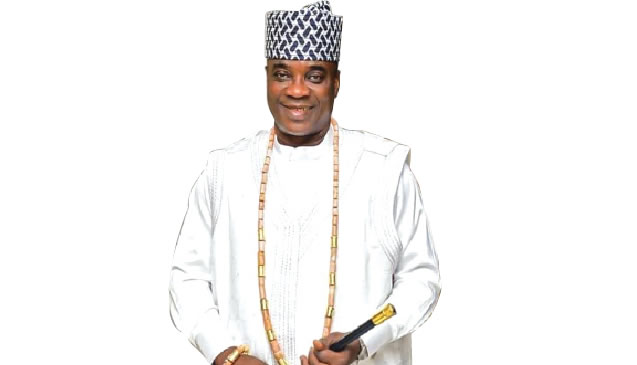The renowned Fuji musician, Wasiu Ayinde Marshal, widely recognized as K1 De Ultimate, found himself embroiled in controversy following a remark he made prior to the Fidau prayer ceremony held in honor of his late mother, Alhaja Halimah Anifowoshe. The contentious statement, captured in a video that rapidly circulated online, ignited a firestorm of debate and criticism, particularly within the Muslim community. In the video, K1 De Ultimate is seen engaging in a conversation while preparing for the eight-day Fidau prayer. He uses the Yoruba phrase “Ga nu si” in reference to some Islamic clerics (Alfas), a phrase that many interpreted as implying that these clerics attend such events primarily for financial gain. This interpretation sparked outrage among many who viewed the comment as disrespectful to the religious figures and the sanctity of the Fidau prayer.
The video clip shows K1 De Ultimate speaking in Yoruba, stating, “Alfas will not go to my father’s house for the party, It’s my house they will ‘Ga nu si’. Then we prayed in my house before going back to my father’s house for the main party.” This statement further fueled the controversy, with critics arguing that it reinforced the perception that some clerics prioritize personal gain over their religious duties. The implication that the clerics would congregate at his personal residence, where presumably monetary offerings would be made, before proceeding to the actual prayer at his father’s house, was seen as particularly offensive. The timing of the comment, just before a solemn religious event honoring his deceased mother, amplified the criticism he faced.
The ensuing backlash was swift and widespread, with many Muslim clerics and faithful expressing their disapproval of K1 De Ultimate’s statement. The criticism centered on the perceived disrespect towards the Alfas and the potential damage to their reputation. Many argued that such a generalization unfairly tarnished the image of dedicated religious leaders who genuinely offer their services and guidance to the community. The controversy highlighted the sensitive nature of religious practices and the importance of respectful discourse when discussing religious figures. It also sparked a broader conversation about the role of financial contributions in religious ceremonies and the potential for exploitation.
Beyond the immediate criticism directed at K1 De Ultimate, the controversy also broadened to encompass a discussion about the behavior of some clerics themselves. Critics pointed fingers at those who appeared to prioritize attending social gatherings and potentially benefiting financially, even when their presence was not specifically requested. This secondary layer of the debate underscored a pre-existing concern within some segments of the Muslim community about the conduct of certain religious figures. It raised questions about the ethical implications of uninvited attendance at such events and the potential for blurring the lines between genuine religious service and personal gain.
The Fidau prayer for K1 De Ultimate’s mother, Alhaja Halimah Anifowoshe, took place on Friday, January 24, and was attended by a large gathering of prominent individuals, including celebrities and notable Islamic clerics. Sheikh Faruq Onikijipa delivered the sermon at the event, which underscored the significance of the occasion within the Muslim community. Despite the controversy surrounding K1 De Ultimate’s prior comments, the Fidau prayer itself proceeded as planned, serving as a solemn occasion for remembering and honoring the deceased. The presence of respected religious figures like Sheikh Faruq Onikijipa likely helped to maintain the solemnity and spiritual focus of the event.
The incident involving K1 De Ultimate and his comments about Islamic clerics serves as a reminder of the power of words and the potential for misinterpretation, especially in the context of sensitive topics like religion. While the musician’s intention behind the statement remains unclear, the ensuing controversy highlights the importance of careful and respectful communication when discussing religious matters. The incident also spurred a wider conversation within the Muslim community about the conduct of religious figures and the appropriate role of financial contributions in religious ceremonies. It underscored the need for continued dialogue and reflection on these issues to ensure the integrity and respect for religious practices.


